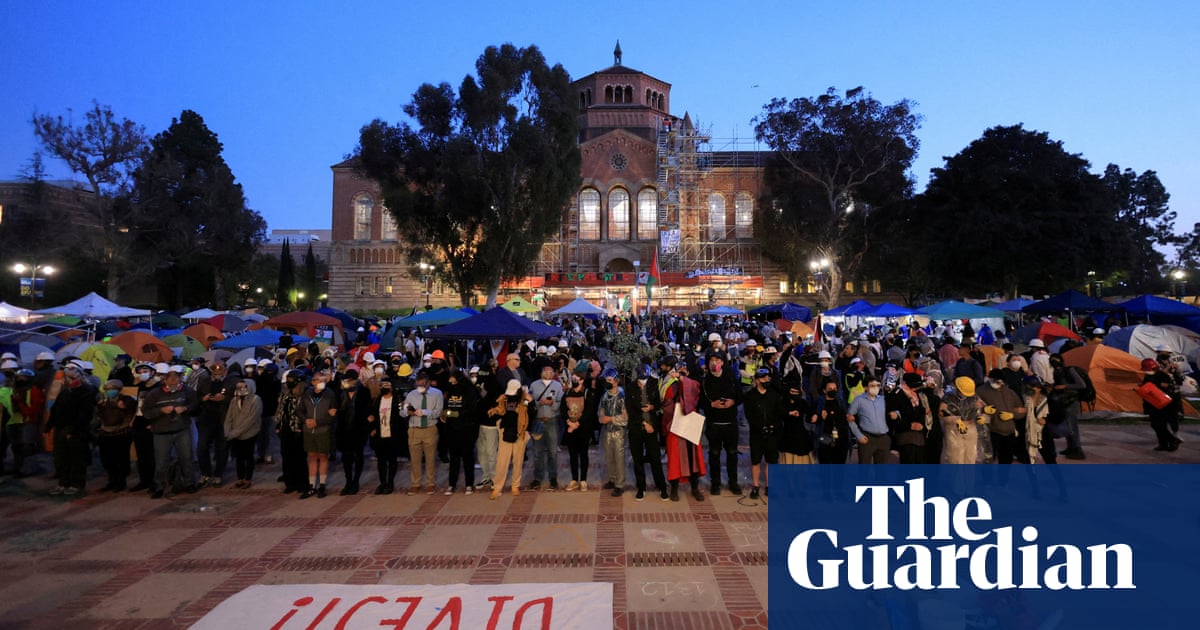Activists are using Donald Trump’s decisive victory to further question the 2020 election results and sow doubts about close US senate races where ballots are still being counted.
While they’ve been quiet about fraud in the presidential election this year, activists pointed to the unofficial total number of votes cast, noting that 20m more ballots had been cast in 2020. Ignoring the reality that there are millions of votes still being counted in states like California, Arizona and Nevada, they suggested the incomplete number was somehow evidence there were fake ballots in 2020.
“Where did 20 million votes go between 2020 and 2024? 15 million for Biden, 5 million for Trump. Who believes Trump received 5 million fewer votes in 2024?” Cleta Mitchell, a Trump ally and leader of the election denial movement, tweeted on Thursday.
Abraham Hamadeh, who won election to the US House in Arizona, made a similar claim. “20 million missing Democrat voters – where’d they go.”
The claim has been echoed by some on the left, who have falsely suggested that there were suspiciously fewer votes in 2024 than 2020 and that Harris should not have conceded the race.
The claims were false. When all votes are counted, more than 157.5m people will have voted in the presidential election, according to an estimate by the New York Times. There were 159.7m ballots counted in the 2020 election.
“Election denial has always, at its core, been about trying to reject and overturn results that the election deniers don’t like,” said Ben Berwick, a lawyer at the non-profit Protect Democracy. “It’s not surprising that the false narrative of non-citizen voting, the false narrative about fraud suddenly evaporate when the preferred candidate does well and it’s also not surprising that it stays alive in races where the preferred candidate is not doing well.”
During a speech from the Rose Garden on Thursday, Joe Biden said the election results should end the corrosive efforts to question American elections.
“I also hope we can lay to rest the question about the integrity of the American electoral system,” he said. “It is honest, it is fair, and it is transparent. And it can be trusted, win or lose.”
But instead of acknowledging the system works, activists targeted races other than the presidential contest, especially close US senate contests where ballots are still being counted.
“So many down ballot Republicans were screwed out of a victory. Trump won by a far greater margin than what was reported,” tweeted David Clements, a former professor in New Mexico who has traveled the country spreading false information about voting machines.
The delicate balance election deniers tried to find after the election was perhaps best encapsulated by Tom Fitton, a Trump ally who leads the conservative group Judicial Watch. “The steal was indeed stopped,” he tweeted on Thursday morning. A few hours later, he tweeted “what is happening right now in Maricopa county is election corruption”.
Activists focused on close Senate races in Arizona and Nevada, two states where mail-in balloting is widely used and votes are counted for several days after the election. Trump is projected to win both states.
In Nevada, Senator Jacky Rosen, a Democratic, overtook opponent Sam Brown in the vote count after initially trailing him. Experts have long warned that because of the way different methods of voting are reported, it may appear that one candidate is ahead on election night only to have them fall behind as more votes are counted.
Robert Beadles, a prominent election denier in Nevada who has spent years questioning election results, claimed there was something suspicious about the count. “They’ve flooded the system with enough illegal votes days after the election to take the lead. Will it stand….,” he wrote in a post on X Thursday morning.
In Arizona, where Democratic Ruben Gallego narrowly leads Republican Kari Lake in the US senate race, election deniers have also used Trump’s victory to question how other Republicans could lose. There were still 943,000 votes left to count on Thursday.
“You’re trying to tell me that people voted for Trump then turned around and voted for Ruben Gallego and other Democrats at the state level?” Josh Barnett, an election denier in Arizona who has supported overturning the results from the 2022 election. “There’s no fucking way that happened. I’m not buying it. I told our state legislature this is what would happen when we don’t have properly and legally run elections. They take and “steal” what they can to gain control. Almost like a trade off.”
Split ticket voting – voting for one party’s candidate at the top of the ticket and another party’s candidates for other offices – is not unusual in American presidential elections.
“Election denial isn’t actually about election integrity, and it’s never been pushed in good faith. The election denial heading into election day 2024 has always been about laying the groundwork to claim fraud and overturn the results if they lose,” said Lizzie Ulmer, senior vice-president for communications and strategic partnerships at States United Action, a watchdog group. “So it’s not surprising that the conspiracy narratives have gone quiet around races where election deniers’ preferred candidates won. But the harm is still incredibly real: this kind of rhetoric and false claims have chipped away at the American people’s faith in our system.”
Peter Bernegger, a Wisconsin activist who has pestered election officials with false claims of fraud, including filing numerous unsuccessful lawsuits against election offices since 2020, posted on Telegram that he had a lawsuit challenging 150,000 absentee ballot requests in the state, noting that Senator Tammy Baldwin, a Democrat was leading by 27,107 votes. “Last time I checked, 150,000 is more than 27,107,” he wrote.
Seth Keshel, an election-denying activist who touts his background as a former US army intelligence officer, focused on Wisconsin, too.
“Most fraudulent election award of 2024: Congrats, Badger State,” wrote Keshel in a post to his more than 90,000 followers on the messaging app Telegram. Keshel complained that the Milwaukee election commission needed to be brought “into order”, pointing to an issue that the commission faced on Tuesday afternoon, when election workers recounted more than 30,000 ballots after discovering that numerous tabulators had not been set up properly. (Bipartisan observers and the commission agreed that the error would not have impacted the accuracy of the count, but decided to rerun the ballots for transparency).
“Same play every year,” he wrote.
With their preferred candidate in office, Trump’s allies in the election denier movement have uniformly celebrated his victory and have declined to question the results of this presidential election. Where their movement – based entirely on undermining confidence in an election that their candidate lost – goes now that Trump has been elected, is unclear.
Douglas Frank, an election-denying influencer who has travelled the country promoting a bunk theory about Democrats leveraging an “algorithm” to flip votes to Biden in 2020, sees in Trump’s victory an opportunity to avenge his 2020 loss.
“We are still at war,” he wrote to his followers on Wednesday morning. “War is messy. Now is not the time for weak stomachs. Now is when we go city-by-city and door-to-door to root out the enemy.”
Berwick, the Protect Democracy lawyer, noted that many proponents of the idea of a stolen election have an incentive to keep the myth going.
“This election denial grift has made a lot of people a lot of money, and so there are people who have a financial incentive to continue this grift, and so I wouldn’t be surprised if that’s some of what is happening here also,” he said.
Rachel Leingang contributed reporting

.png) 3 months ago
30
3 months ago
30













































